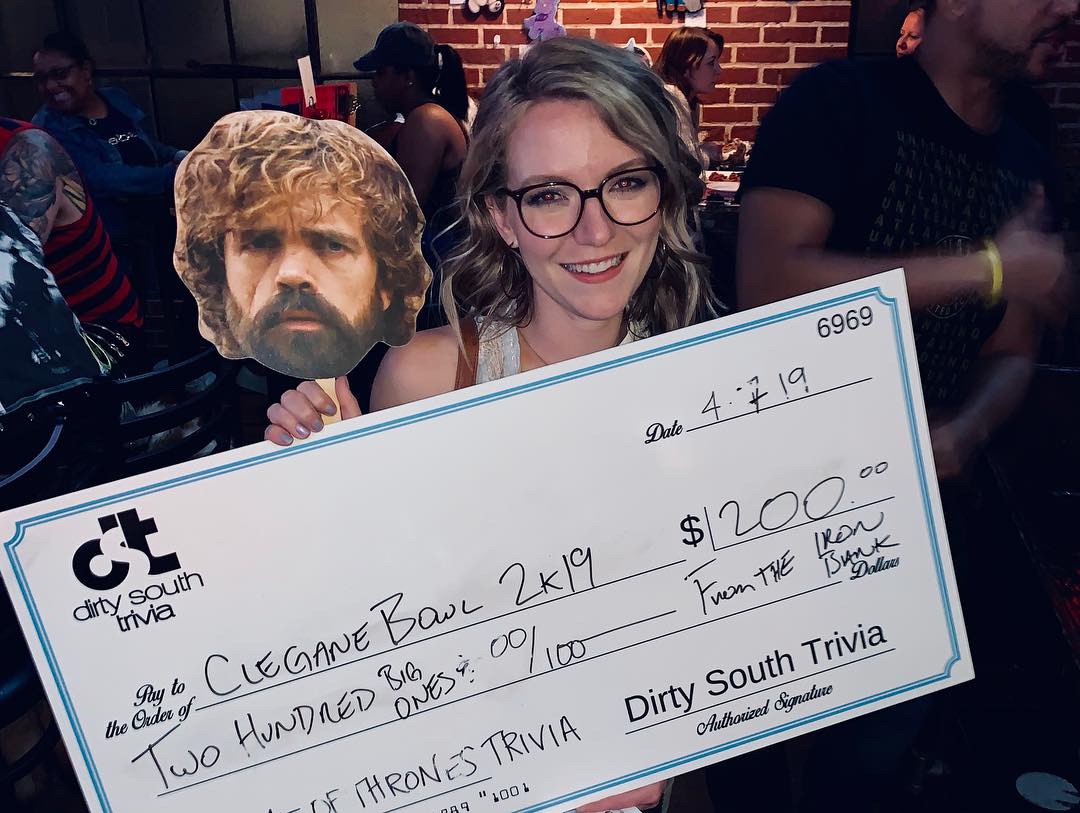Game of Thrones: A Case Study on Marketing to Millennials
If there’s a case study on how to create a comprehensive marketing strategy for a specific generation - that case study is Game of Thrones.
The Wall Street Journal estimates season 8’s marketing budget to be around $20 million, so it’s important for marketers to note that, against all odds, Game of Thrones has built nothing short of an incredible brand.
Think about it. The premium cable television show - which has over 30 main characters and takes place in an alternate fantasy universe with magic and dragons - effectively executes the driving principles behind UX, authenticity, community building, digital marketing, storytelling, content marketing, and more in its millennial-focused marketing strategy. What can marketers learn from Game of Thrones?
A Lesson in Corporate Social Responsibility
Today, people care about a brand’s values. Generally, millennials are far more likely than any other generation to research the issues that a company supports/the extent to which a company contributes to a cause. Younger generations expect more from their favorite brands, and Game of Thrones has risen to that challenge.
In 2015, a portion of the cast collaborated with the British rock band, Coldplay, on a musical parody of Game of Thrones in order to support Red Nose Day - a charity focused on ending child poverty.
More recently, HBO partnered with the American Red Cross to encourage blood donations in one of the many brand activations available at South by Southwest. At the event, guests were encouraged to “bleed for the throne” (donate blood) and relive the major deaths that have occurred on Game of Thrones over the years. In the first day alone, the campaign was on track to collect more than 15,000 pints of blood.
It’s clear that Game of Thrones cares about more than just dragons. Even still, the show’s creative approach to corporate social responsibility always ties back to the brand.
A Lesson in User Experience (UX)
The best way to get people to take action/engage is to make it easy. Game of Thrones made itself accessible to millennials in two ways:
#1 - By closing knowledge gaps that could discourage people from watching
Game of Thrones is notorious for small details that foreshadow a major reveal (cough, Red Wedding). However, in order for those big moments to pay off, viewers need to connect the dots.
From a marketing standpoint, Game of Thrones has enough self awareness to know that the average, casual fan has trouble remembering all of the nitty gritty details from prior seasons.
The answer? Creative video content like “The Game of Thrones Beginner’s Guide,” which makes the show more accessible by laying out the daunting complexities of the Game of Thrones universe while shifting the ordinarily dark tone of the show to something more light-hearted and fun to watch.
Plus, who doesn’t like Samuel L. Jackson?
#2 - By being easily accessible
When it comes to cord cutting, the millennial generation leads the way. In fact, according to a 2018 survey conducted by Cg42, 18% of millennials described themselves as “cord-nevers.”
In the past, Game of Thrones was only available to viewers with an HBO subscription. This, coupled with the show’s intense popularity on an international scale, led Game of Thrones to become one of the most pirated shows in television history.
To address these issues, HBO created a stand-alone streaming platform called HBO Now and partnered with online streaming platforms like Hulu to make HBO programming more accessible to its millennial audience.
A Lesson in Social Media
When it comes to Game of Thrones and social media, the show doesn’t have to do much to start the conversation. According to Casey Bloys, HBO’s programming chief, “The fans are loyal and rabid, especially on social media. They spread the word.”
Nonetheless, Game of Thrones’ social media strategy is marked by creative campaigns that inspire user participation, like the classic #RoastJoffrey campaign, which encouraged fans to roast an infamously hated character.
When Chris Spadaccini, executive VP and president of marketing at HBO, discussed the final season, he joked about fan involvement on social media saying, “We could probably do absolutely nothing and shatter every ratings record in the book...At the same time, we feel an enormous responsibility to commemorate what is arguably one of the greatest TV shows ever made, that has cemented its place in popular culture.”
Game of Thrones paid off this responsibility when it launched the #FortheThrone campaign in the months leading up to season 8. This campaign was particularly smart because the hashtag played off fans’ commitment to the show, generating buzz about the new season, AND it helped fans remember the key moments from the past nine years.
A Lesson in Authenticity
One of the brand pillars of Game of Thrones seems to be “We fit in but we also stand out,” or “We have something for everyone… but that doesn’t mean we’re not unique.”
HBO conveys this message through various unexpected collaborations with all kinds of artists - like the Rep the Realm clothing line, or the Game of Thrones craft beer line. There’s even a mixtape called ”Catch the Throne” which features rap superstars like Snoop Dogg and Big Boi alongside bands like Killswitch Engage and Mastodon.
Game of Thrones has also participated in some unconventional brand partnerships over the years - from a High Valyrian Duolingo course, to a special edition Oreos package, to a Super Bowl spot co-branded with Bud Light.
All in all, the Game of Thrones brand weaves together ideas of inclusivity and individuality in its marketing strategy, which really resonates with millennials.
A Lesson in Content Marketing & Storytelling
Millennials love behind the scene looks at brands. For season 8, show runners released a video series titled, “The Cast Remembers,” which chronicles how the show impacted the lives of its cast members over the last ten years. Not only is this great storytelling, it also humanizes the actors, forging an emotional connection between the fans and the show.
The content doesn’t stop at the cast, however. One of the most remarkable parts of Game of Thrones is the sheer scale at which the show operates and how the various moving parts extend beyond the show itself. The show’s content marketing explores the various creative departments on Thrones, highlighting the artistry that goes into each endeavor every step of the way.
Music lovers can learn about how the show’s composer, Ramin Djawadi, writes the scores for the show. Fashion lovers can learn about what goes into the costume designs and how costumes evolve alongside character development. Film buffs can learn about what goes into the stunts, the camera work, and the visual effects of the show. This specificity caters to small segments of the larger audience… but in doing so, it creates a strong connection with each segment.
A Lesson in Community Building & User-Generated Content
Game of Thrones is a cultural phenomenon largely because HBO enables fans to elevate the brand in their own authentic way. Despite the intense artistry and attention to detail on Game of Thrones, the show has never taken itself too seriously.
There are countless examples of fans using the Game of Thrones brand that, in the context of another brand, might be questionable: YouTube accounts dedicated to fan-made trailers or episode analyses, entire Reddit communities, podcasts, fan-made merchandise for sale on Etsy, the list could go on forever. The point is that most of these entities are not formally licensing the Game of Thrones brand.
Loosening the grip on a brand is always a gamble, but in the case of Game of Thrones, it paid off handsomely. While HBO has litigated certain cases of copyright infringement, the majority of unauthorized use seems to be permitted, which further extends the brand’s reach.
Game of Thrones gets right what most brands don’t: the show markets to millennials without treating them like a uniform entity… and, beyond that, the tactics used to target millennials do not alienate other audiences. Given that this show should theoretically appeal to a fairly narrow audience, its overwhelming popularity is extraordinary. It’s safe to say that Game of Thrones is not your average fantasy series.

This post was written by Kate Jacoutot, Biggest Game of Thrones Fan
(She's also the Director of Marketing at Setup™.)










Setup’s 2025 Marketing Relationship Survey gives marketers a rare, honest look into what brands and agencies say is working and what quietly destroys partnerships.
The truth is that relationships fail because of patterns, mistakes that pile up over time, even after multiple warnings. So here are the most common red flags and green flags in the agency-client relationship based on what real marketers are telling us.